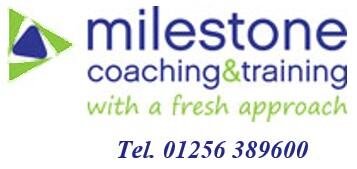FAQs: How Can Life Coaching Help You?
What is the main difference between life coaching and therapy?
When coaching adults, I draw heavily on the power of actionable steps and strategies to achieve change and improvement in their lives, and help them achieve what they want to achieve. I believe that life coaching is about where the client is today, where they want to be in the future, and how to close the gap - whether that’s at work, in their private life, their social and love life, or in their overall wellness. My coaching is very future-focused and draws on committed, actionable strategies to ensure change, improvement, decisions, and growth.
In contrast, therapy, in my opinion, is about where someone is today and why. What in their past is influencing their present? It generally focuses on healing past emotional wounds together.
How does confidence coaching help me overcome self-doubt and imposter syndrome?
My confidence coaching approach is to identify the root causes of self-doubt and work with you, helping you to replace the limiting beliefs you have with much more empowering thought patterns. We will use practical tools to help you build your presence, communicate confidently, and feel more comfortable outside of your comfort zone, ultimately helping you to believe in yourself, expand your confidence, and feel unstoppable in the areas most important to you.
Who is coaching for?
Coaching is for anyone ready to invest in personal growth, regardless of their current success level, because there is always room for growth and development, we never stop learning and expanding. Many clients come to me feeling unfulfilled or are facing a major life transition (like a career change, starting university life, the menopause, or a divorce). I help you define what success and happiness mean to you and work with you, helping you create an actionable plan and supporting you to get you there.
How long does coaching typically take?
Results often start showing after just a few sessions, but you may decide to go a little deeper. I do not tie anyone into a set number of 121 sessions; instead, you, the client, decide whether you have reached your coaching goal, or whether a session or two more would be helpful. I believe the power of coaching is to empower the client to make decisions and changes, and that starts with decisions around how long you want to work together, so we go one at a time.
I feel overwhelmed by my job. Can coaching help me manage work stress?
Absolutely. Stress coaching is highly effective for managing work stress and preventing burnout. I focus on developing robust coping mechanisms, improving boundary setting, and creating better work-life balance. This ensures you can handle pressure without feeling overwhelmed or compromising your health.
What format does a coaching session take?
Coaching is a one-to-one relationship between a client and the coach. Regular sessions are held, either face-to-face in my home office near Basingstoke, or via Zoom. Weekly tasks and exercises will be agreed upon by the end of each session, and these actions, or activities, will be undertaken by you, the client in order to apply what we have covered. E-mail support between sessions is available if required.
Often, a coaching relationship will last between 2 and 6 weekly sessions, but you will begin to enjoy the benefits from the very first session. The coaching relationship can, of course, last for as long or as short as you want it to.
Who would coach me?
I will. I am Dawn Fiske, a highly qualified life coach with over twenty-two years of experience in coaching and training. I trained and qualified with the Life Coaching Academy, Europe’s leading Coaching Organisation, and am an NLP Practitioner, have a Bachelor of Science degree in Psychology, have training in Counselling skills and Acceptance & Commitment Therapy (ACT), and am an accredited Menopause and Wellness Coach.
I have enjoyed a long and successful career within the corporate, charity, and private sectors.


